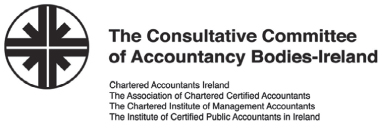CCAB-I Response to Zone and Service Land Consultation

47 – 49 Pearse Street, Dublin 2, IRELAND
Zoned and Serviced Land Public Consultation
Tax Policy Division
Department of Finance
Government Buildings
Upper Merrion Street
Dublin 2
By eMail to: zoned&servicedland@finance.gov.ie
5 May 2015
Dear Sir/Madam
Comments on the potential of taxation measures to encourage development of zoned and serviced land
We refer to the above titled document and offer commentary on the extent to which taxation measures might be taken to encourage the development of land. Our commentary is pertinent to question 3 (in section 4) of the public consultation paper.
Question 3: Possible corrective tax measures that could be introduced to encourage development”
- We wish to state that the abolition of the 80% rate of Capital Gains Tax, introduced in 2009 and repealed by Finance Act 2014, is a positive feature in the encouragement of land development. Such abolition removes a significant disincentive to the sale of certain land and should spur an increase in the accessibility of land available for development from 2015 onwards.
- We believe that before the potential of taxation measures as a means of encouraging land development can be analysed, it is critical that Ireland has a fully functioning banking system. Currently, one of the main obstacles to growth in many sectors of the Irish economy is the availability of finance.
- In contemplation of actual tax incentives introduced to encourage land disposals and development, we believe that tax incentives introduced should be geared towards outlays and expenditures of the developer rather than on gains of the vendor. This would offer the most immediate benefit in the encouragement of land disposals. Matters to consider might include:
- Stamp Duty Relief (a reduced rate of Stamp Duty on the purchased of zoned land).
- Deferral of VAT charges on construction costs: Permitting VAT to be settled on the ultimate disposal of the property would represent a significant cash-flow advantage (with the objective of synchronising VAT on construction costs with the VAT receipt on the ultimate disposal, insofar as EU directives will allow).
- We are supportive of the proposed design of tax rules which stimulate economic growth, as outlined in the document “Competing in a Changing World: A Road Map for Ireland’s Tax Competitiveness”, as published by your department. We suggest that any proposed tax incentive should be subject to review after an initial period of two years.
- We note that it is likely that any proposed tax incentive will require EU State Aid approval, which can be a time-consuming process. The efficacy of such tax incentive will be dependent on how quickly EU approval can be achieved. In this regard, consideration should be given to the fact that any proposed tax incentive may be the subject of commencement order, pending EU approval.
You may wish to note that this response is from a representative body. The Consultative Committee of Accountancy Bodies – Ireland is the representative committee for the main accountancy bodies in Ireland. It comprises Chartered Accountants Ireland, the Association of Chartered Certified Accountants, the Institute of Certified Public Accountants in Ireland, and the Chartered Institute of Management Accountants, which represent a combined membership of some 40,000 accountants. Brian Keegan, Director of Taxation at Chartered Accountants Ireland (brian.keegan@charteredaccountants.ie, +353 1 6377 347) may be contacted if any further details in relation to this letter are required.
Yours faithfully

Paul Dillon, Chairman, CCAB-I Tax Committee
